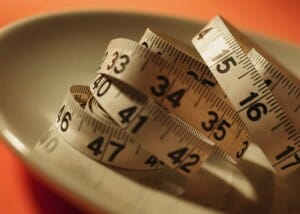If you’ve undergone a procedure requiring anesthesia, you’ve likely been told by your healthcare provider to stop eating or drinking at midnight the night before the procedure occurs. This has been the standard rule of thumb promoted by anesthesiologists, surgeons, doctors and other healthcare providers for at least the last few decades. This rule was created as a safety precaution for patients to ensure their stomachs were mostly empty when put under as there are choking and contamination risks associated with anesthesia, particularly for certain kinds of surgery. However, the no food or drink after midnight rule is often handed out as a general blanket ban, with no consideration as to the type of procedure, the time the procedure is taking place the next day, the health of the patients or other factors that can have just as much impact on the success of the surgery. In addition, patients have historically done a less than perfect job of following this rule and have still come out of surgery safely time and time again.
Today, experts in the field are starting to question this antiquated rule. More than half of the members of the American Society of Anesthesiologists no longer recommend a complete ban on food and drink before surgery as they consider this practice to be overly cautious. The new guidelines do ask patients to refrain from eating eight hours prior to surgery, however they encourage patients to drink clear fluids all the way up to two hours prior to the surgery for all elective surgical procedures. But are these new recommendation safe? Should you fast starting at midnight prior to undergoing anesthesia or are the new thoughts on consuming clear liquids the way to go?
How Does Anesthesia Work?
To understand why doctors have been giving the no food, no drink order for so long, it’s important to understand what anesthesia is and how it works on the human body. Anesthesia is a combination of drugs given to a patient to either numb a particular region of the body (local anesthesia) or render the patient entirely unconscious (general anesthesia) so that a surgical procedure can be completed. Before anesthesia was invented in the 1800s, doctors had to perform painful and often difficult procedures such as amputations, tooth extractions and stitches for wounds with nothing to dull the pain other than a shot of whiskey or perhaps a measure of opium. Patients today forgo the whiskey and instead receive a combination of drugs administered by an anesthesiologist that make the surgery itself a completely pain-free experience.
When you go in for a surgical procedure requiring general anesthesia, the anesthesiologist will administer a combination of drugs in a quantity that will keep you under for the duration of the surgery. The drugs are quite safe and have very few side effects; however, they do tend to interfere with your natural ability to breathe, which is why patients are often intubated during a procedure requiring general anesthetic, and this is where the order to fast comes in. There is a general concern that if there are solids or liquids in your stomach at the time of surgery, they could be accidentally inhaled, causing asphyxiation, or the inability to breathe.
This idea was solidified during the 1950s when two research papers detailing the deaths of two pregnant women were released. These women died during delivery when the contents of their stomachs were accidentally ingested into the lungs. This deepest fear of anesthesiologists seemed to be confirmed, thus giving rise to the NPO policy.
NPO After Midnight
The official policy for not eating of drinking after midnight is known as “NPO after midnight” in the medical community and was accepted by the American Society of Anesthesiology up until 1999. NPO stands for nil per os, a Latin phrase meaning “nothing by mouth.” The idea is that by fasting at least eight hours prior to going under, your stomach will be mostly empty, making the likelihood that you accidentally breathe in material from your digestive tract that much less. There is also the secondary idea that you’re less likely to become nauseated from the anesthesia drugs if your stomach is empty, reducing the risk that you vomit during surgery and subsequently choke on the vomit.
NPO after midnight does seem like a reasonable idea based on these choking risks; however, the main examples often pointed to, such as the research papers detailing the deaths of the pregnant women mentioned previously, are based on outdated surgical methods that were unable to protect the patient’s lungs. These days, we use intubation to ensure patients continue to breathe while under anesthesia. The endotracheal tubes placed in surgical patients today ensure patients can breathe throughout their procedures and are designed to prevent choking in the event that some debris does enter the lungs.
Modern Surgical Realities
So does the advancement in medical science and the ability to keep patients breathing during surgery mean the NPO order is completely outdated and should be abolished immediately? Not entirely, however the guidelines should be revisited and are being challenged by top experts in the field of anesthesiology.
Around the turn of the century, approximately thirty studies were released showing that patients who ingested clear liquids up to two hours before their surgeries had emptier stomachs than those who had fasted since the prior evening, challenging the notion that NPO after midnight is the most effective way to prepare patients for surgery. Upon further review, it was found that in preparation for the coming fast, many patients would eat large, heavy dinners right before midnight to try and get in that one last meal before surgery. That meal would then sit in their stomachs overnight, barely digesting by the time they arrived for prep early the next morning. For many patients, simply being able to have a clear liquid drink in the morning eased their fears of hunger and stopped them from filling themselves up, causing them to have much emptier stomachs by the time of surgery.
In addition to the reality that NPO orders don’t always work to empty the patient’s stomach properly, it’s important to consider the modern realities of today’s medical environment. In the past, patients would spend the night in the hospital before the surgery and would be put under at the crack of dawn, making the after-midnight fast both enforceable and relatively painless. Today, most surgeries are outpatient procedures, meaning the patient is at home the night before the surgery and returns home soon after the procedure is complete. Surgeries are also scheduled throughout the day all the way into the late afternoon. It’s not reasonable to expect a patient to fast starting at midnight the prior evening if their surgery isn’t scheduled until three o’clock in the afternoon the following day.
The Benefits of Not Fasting
Based on the realities of the modern medical landscape alone, many anesthesiologists are changing their guidelines for fasting before surgery, but there’s more. A number of prominent studies have been conducted in recent years showing that allowing patients to drink clear liquids up to two hours prior to surgery does not increase the risk of choking or other complications associated with not fasting prior to receiving anesthesia and actually reduces the risks of complications of surgery in general. Patients allowed to drink clear fluids experience less anxiety overall, require less IV fluids both during and after surgery, maintain a better metabolic rate when put under and recover better after the procedure is complete due to more steady blood sugar levels. Many patients also report feeling better overall without the stress of a complete fast on the day that an already stressful event is taking place.
The New Guidelines
Not every doctor or anesthesiologist is on board with the new recommendations for fasting before surgery, so it’s important to check with your doctor before any procedures and follow their instructions carefully. There might certain health risks or other considerations in play when your doctor makes the NPO after midnight recommendation, and there are still certain procedures that require a completely empty stomach for various other reasons.
However, for basic elective procedures with few risks, a patient should refrain from eating solid food at least eight hours prior to their scheduled start time but can continue to consume clear liquids up to two hours prior to the procedure. Clear liquids include water, juice, sports drinks such as Gatorade as well as coffee and tea without milk. Due to its high protein and fat content, you should refrain from drinking milk eight hours prior to surgery as it takes longer to digest than other fluids. If you absolutely must eat something less than eight hours before your surgery, plain toast or crackers are the best options as they are easily digestible and will clear from your system quickly.
Modern medicine is constantly changing. The best doctors in the world are continually striving to make advancements that both improve patient comfort and outcomes. The guidelines surrounding fasting before surgery are one of those areas where new technology coupled with a better understanding of surgical procedures has allowed for new guidelines to be set. Mandatory NPO after midnight policies have been abolished and over fifty percent of anesthesiologists belonging to the American Society of Anesthesiologists surveyed recommend these new guidelines. It is now considered generally safe to have clear liquids two hours prior to surgery, and you can feel safe having a sip of juice to rev your metabolism, soothe your stomach and calm your nerves the morning of a procedure. However, always consult with your doctor and follow his/her guidelines.
Surgery and other procedures requiring anesthesia are stressful. The best way to prepare for any surgery is to be proactive. Take care of your health prior to going under by maintaining a health weight, an ideal body mass index (BMI) and eating a healthy diet. If you’d like more information on BMI, ideal weight and other health factors that can affect your risks of complications during surgery, check out www.healthstatus.com/calculators/ for more information.







